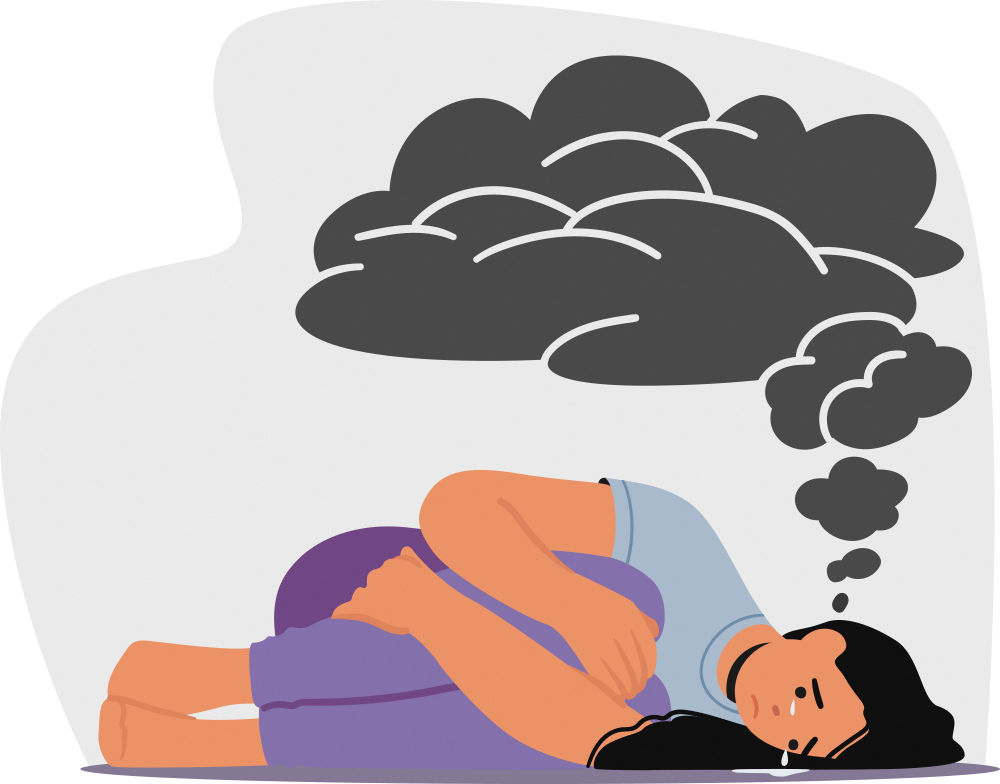
To help you differentiate between normal behaviours and signs of concerns, here are some different scenarios your child may encounter and what their displayed behaviours might indicate. If they show prolonged or significant signs of concern, it may be symptoms of a mental health condition.
Please note that these examples are a guide and do not replace seeking professional help. Avoid using it to diagnose your child's mental health without consulting mental healthcare professionals. If you are concerned about your child, please seek professional help to support you and your child in this journey.
If your child feels down
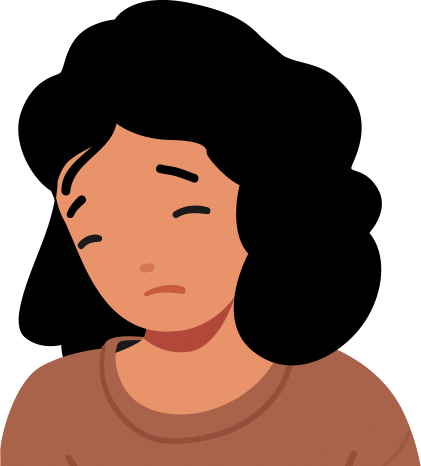
They feel down occasionally due to upsetting situations.
They feel down, worthless, or hopeless most of the time for at least 2 weeks.
Displayed behaviours may include:
-
Withdrawing from family, peers, or school
-
Losing interest in activities they usually enjoy
-
Sleeping more or less than usual
-
Eating more or less than usual
-
Self-harming, threatening to self-harm, or attempting suicide
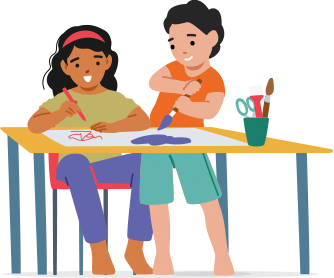
Younger children may also:
-
Show irritability, lash out, cry more than usual
-
Daydream, stare into space more than usual
-
Complain of physical illness without clear medical cause (e.g. headaches, stomachaches, nausea)

Older children and adults may also:
-
Show irritability
-
Feel down and tired most of the time
-
Feel hopeless about the future, even if there is no apparent reason to feel this way
-
Be unable to concentrate well
-
Feel down to the point it disrupts daily life (e.g. difficulties in social relationships, completing daily tasks)
Major Depressive Disorder (MDD), which is one type of depression.
If you notice your child displaying these signs for at least 2 weeks, please seek professional help.
You can learn more about Major Depressive Disorder here.
If your child feels fearful or anxious
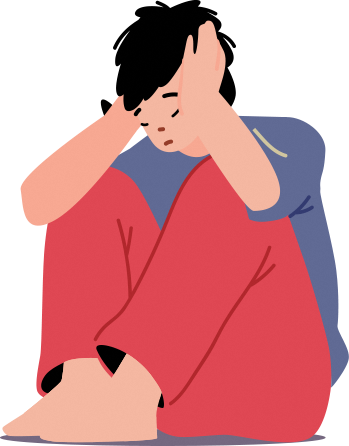
They feel fearful or anxious occasionally, as being anxious puts one on alert to potential dangers.
They feel intense and persistent fear, anxiety, and worry in most situations for at least 6 months.
Displayed behaviours may include:
-
Always feeling nervous or fearful even when there is no real threat
-
Always worrying about negative events that could happen
-
Finding it difficult to control or stop their worrying
-
Constantly feeling restless or on edge
-
Constantly feeling high amounts of anxiety in response to small stressors
-
Complaining of physical illness without clear medical cause (e.g. headaches, stomachaches, difficulty breathing)
-
Changes in sleeping patterns
-
Feeling worried to the point it disrupts daily life (e.g. difficulties in social relationships, completing daily tasks)
-
Becoming more easily irritated
-
Having difficulties concentrating
-
Problems in relationships with family and friends
Generalised Anxiety Disorder.
If you notice your child displaying these signs more often than not for a few months or more, please seek professional help.
You can learn more about Generalised Anxiety Disorder here.
If your child feels fearful or anxious in social situations
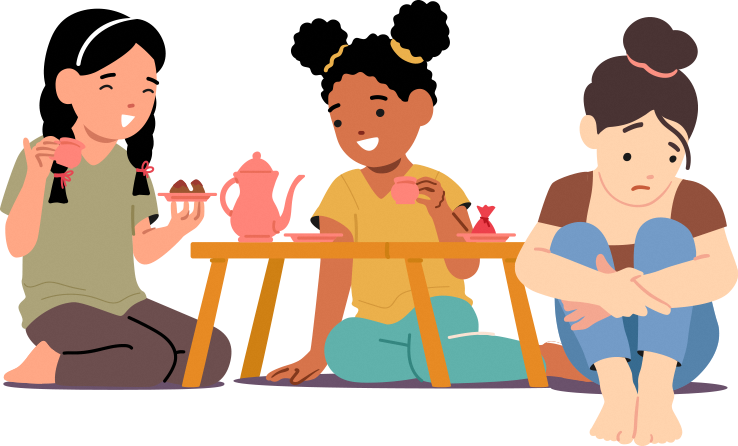
They feel nervous occasionally in social situations (e.g. when meeting new people, giving a presentation).
They feel intense fear or anxiety in most social situations for at least 6 months.
Displayed behaviours may include:
-
Being very anxious and fearful in social situations
-
Always worrying about how others view them
-
Showing signs of fear from being judged negatively by others
-
Avoiding most social situations
-
Experiencing physical symptoms (e.g. sweating, nausea, trembling, elevated heart rate)
-
Feeling anxious to the point it disrupts daily life (e.g. being unable to attend school or work)
Social Anxiety Disorder (Social Phobia).
If you notice your child displaying these signs for a few months or more, please seek professional help.
You can learn more about Social Anxiety Disorder here.
If your child feels anxious or upset when being away from you or a loved one
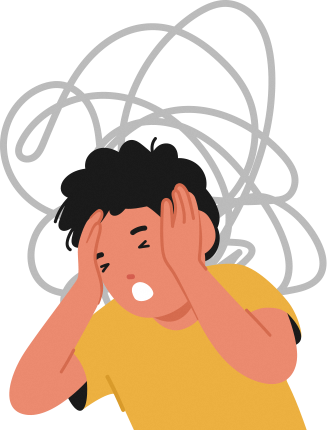
They feel sad or upset when separating from a loved one but recover shortly after.
They feel excessive fear or anxiety of being separated from someone they feel attached to.
Displayed behaviours may include:
-
A fear of separating from people important to them to the point it disrupts daily life (e.g. not attending school or work)
-
Feelings of fear and anxiety from separation that is inappropriate for their age (e.g. a 12-year-old cries and screams loudly when separating from a parent to attend school for the day)

Younger children may also:
-
Feel persistent fear and anxiety
-
Always be fearful and anxious when separating from loved ones and important figures in their life (e.g. parents, caregivers)
-
Avoid or refuse to be in any situation where they need to separate from people important to them
-
Complain of physical symptoms when separated from people they are attached to (e.g. headaches, stomachaches, nausea, vomiting)

Older children and adults may also:
-
Feel persistent fear and anxiety
-
Have an excessive fear of losing important figures in their life or possible harm to them (e.g. illness, injury, disasters, death)
Separation Anxiety Disorder.
If you notice your child displaying these signs for at least 4 weeks (or 6 months and more for your older child), please seek professional help.
You can learn more about Separation Anxiety Disorder here.
If your child has certain habits or ways of doing things
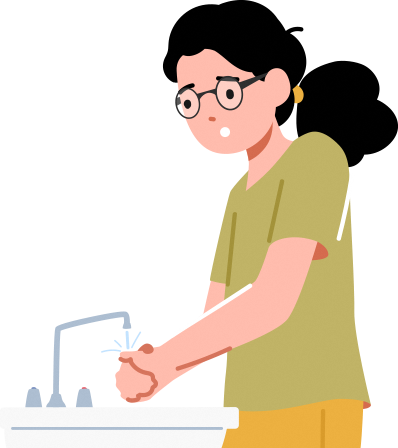
They generally
-
Are neat and clean
-
Have certain habits or methods of doing things but are okay with changes
They have unwanted, intrusive thoughts which cause anxiety (obsessions), as well as engage in time-consuming and repetitive behaviours (mental or physical) to manage this anxiety (compulsions).
Displayed behaviours may include:
-
Having repeated, unwanted thoughts or mental images that cause anxiety
-
Engaging in repeated behaviours very often or for abnormally long periods of time (e.g. washing, checking, counting, asking for reassurance, insisting on doing things a certain way, repeating words silently)

Younger children may also:
-
Get upset when unable to engage in their repeated behaviours
-
Have thoughts or behaviours that disrupt daily life (e.g. difficulties in social relationships, not attending school or work)

Older children and adults may also:
-
Demand family members accommodate and ‘give in’ to their behaviours
Obsessive-compulsive disorder (OCD).
If you notice your child displaying these signs, please seek professional help.
You can learn more about obsessive compulsive disorder here.
If your child sees/hears things that are not there or has unusual ideas
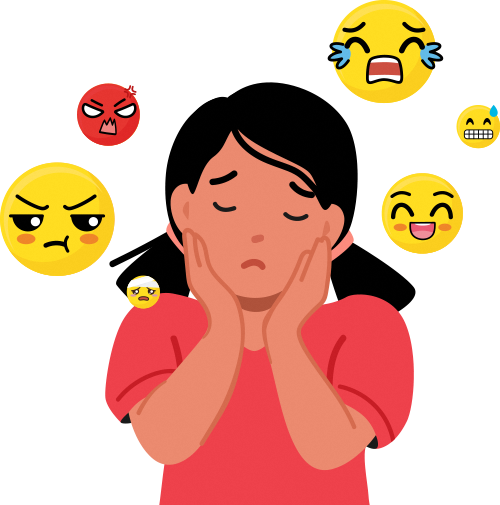
They have imaginary friends and/or engage in pretend play (especially for younger children).
They have
-
Difficulties differentiating what is real from delusions (i.e. believing in things that are not real) or hallucinations (i.e. seeing/hearing things that are not there)
-
Delusions and hallucinations that disrupt daily life* (e.g. difficulties in social relationships, withdrawing from others, not able to complete daily tasks)
Schizophrenia, which is commonly misunderstood as ‘split personality’, but is actually a disorder of ‘split reality’.
If you notice your child displaying these signs, please seek professional help.
You can learn more about Schizophrenia here.
If your child has mood swings
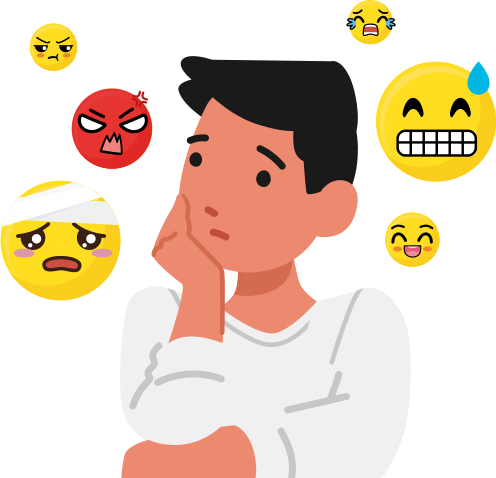
They experience
-
Temporary mood swings due to medical or physical situations
-
Different feelings and moods in different situations
They experience prolonged episodes of extreme highs (mania) and lows (depression).
For example,
-
When depressed, they may feel constantly sad, hopeless, lethargic, or experience changes in sleep and appetite
-
When experiencing mania, they may be overly energetic, more irritable, have racing thoughts, talk very quickly, make grand plans, or engage in risky or impulsive behaviour
Bipolar Disorder*.
If you notice your child displaying these signs for a few months or more, please seek professional help.
You can learn more about Bipolar Disorder here.
* Note that symptoms of bipolar disorder can be different for different people.
If your child feels self-conscious about their weight or food
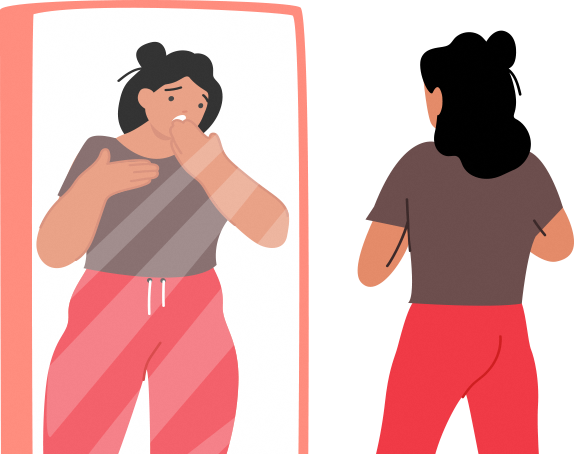
They generally
-
Avoid specific foods but eat other foods which still give enough nutrition and energy
-
Feel self-conscious about their weight or food intake (especially during their teenage years), but still eat regularly without being overly preoccupied with food or weight
They are
-
Overly preoccupied with weight, food, and exercise (e.g. frequently weighing themselves, saying that they are fat, being very particular about type or portion of food they eat)
-
Taking extreme measures to prevent weight gain (e.g. vomiting, taking laxatives)
-
Showing discomfort towards or avoid situations where they are expected to eat, especially around others (e.g. family mealtimes)
-
Extremely picky eaters (e.g. only eating food with a certain taste, colour or texture, to the point where their growth stops or there is significant nutritional deficiency)
Displayed behaviours may include:
-
Rapid weight loss or gain
-
Poor appetite
-
Repeated binge eating (i.e. overeating with a lack of control such that they eat a lot of food in a short time)
-
Excessively exercising
-
Giddiness or fainting spells
-
Delayed or interrupted development (e.g. not growing taller, loss of muscle mass, delayed puberty)
-
Impacted physical health (e.g. loss of menstruation for females)
-
Frequent vomiting
An eating disorder*, of which the most common types are anorexia nervosa, bulimia nervosa, and binge-eating disorder.
If you notice your child displaying these signs for a few weeks or more, please seek professional help.
You can learn more about eating disorders here.
* Note that some may try to hide their eating disorders to manage feelings of shame (e.g. wearing loose clothes to hide weight loss, lying about what they have eaten, throwing away food to make others believe they have eaten).
If your child is using devices
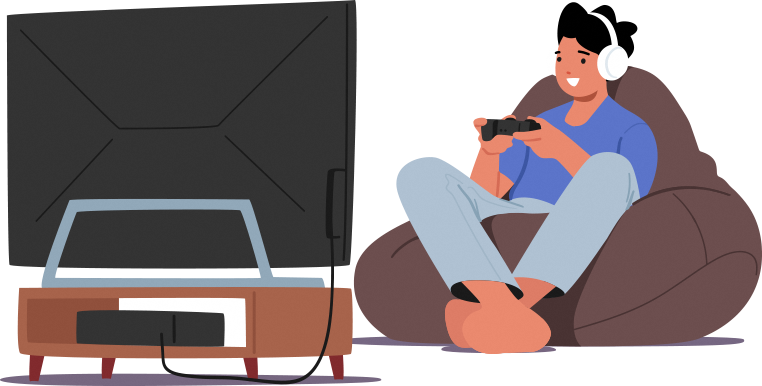
They use the Internet and devices for learning, or for gaming and leisure with control (e.g. can manage their time, stop when parents insist/tell them to)
They are
-
Spending most of their time on the Internet or playing games (~8-10 hours a day)
-
Feeling extreme irritation or anger when prevented from going on the Internet, playing games or using social media
-
Needing to spend an increasing amount of time on the Internet or gaming to be satisfied
-
Experiencing significant impacts on their schoolwork or social life due to their Internet use or gaming (e.g. not completing homework, spending less time with friends and family such that their relationships are affected negatively)
Displayed behaviours may include:
-
Loss of previous hobbies and interests
-
Inability to control or stop their Internet use/gaming despite wanting to stop
-
Lying about the amount of time spent on the Internet/gaming
-
Using Internet/gaming to cope with their negative moods
Internet Gaming Disorder*.
If you notice your child displaying these signs, please seek professional help.
As per ICD-11, the eleventh revision of the International Classification of Diseases by WHO.


